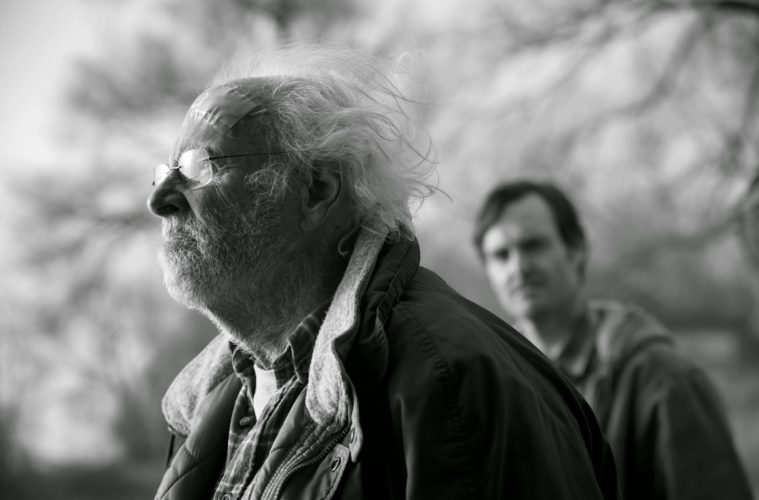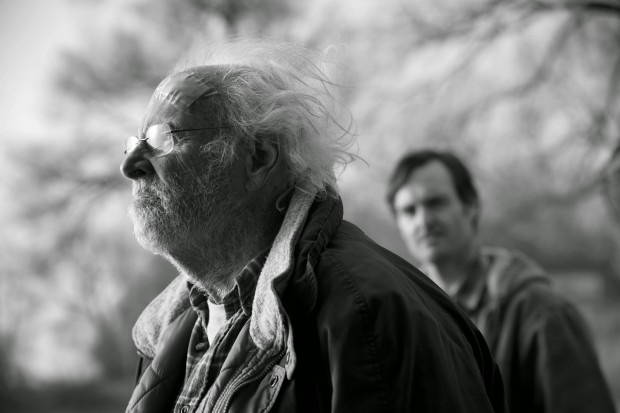
Closing out our year-end coverage is individual top ten lists from a variety of The Film Stage contributors, leading up to a cumulative best-of rundown. Make sure to follow all of our coverage here and see John Fink’s favorite films of the year below.
Let us not pretend 2013 is the golden age of cinema; when the chips fell it was what it was, a year with a few standouts and a lot that will quickly be forgotten. The largest trend of note as seen in the festival world is the continued proliferation of film festival, not only as gatekeeper and curator but also as the shaper of content via development labs. The results are a little mixed; the dull Blue Bird, developed via the Sundance Labs, had its world premiere at Tribeca. At this year’s Toronto International Film Festival two different programmers admitted to screening works they had been tracking in various states of rough cuts; in one instance, seeing a film three times over the course of a year until it was ready to be invited — at least he was transparent.
Digitization of the experience has arrived in a major way, so much so NATO (the North American Theatre Owners) have estimate more than 90% of American film screens have been converted. 35mm holdouts were given a drop-dead notice by Paramount; Anchorman 2 will be their last celluloid release (although speculation indicates Nolan’s Interstellar may see a 35mm release). 2013 will be the last year you will likely see a first-run release in 35mm outside of the Alamo Drafthouse Ritz in Austin (they have committed to running 16, 35, 70mm and DCI-digital).
Digital cinema, including satellite delivery, has already drastically reduced distribution costs. The technology and infrastructure exists to deliver more diverse programming to theaters in a low risk way (like on a Tuesday night, when the theater is empty) — if only exhibitors and distributors would make meaningful progress towards this goal. Here’s hoping in 2014 the dream of exhibitors like Digiplex Destinations — founded on the notion of turning traditional cinemas into “entertainment centers,” showcasing commercial movies along side “alternative content” — will come true! Moving from distribution to my picks of the best films of the year, check out my top 10 favorites below, preceded by honorable mentions.
Honorable Mentions:

10. At Any Price (Ramin Bahrani)
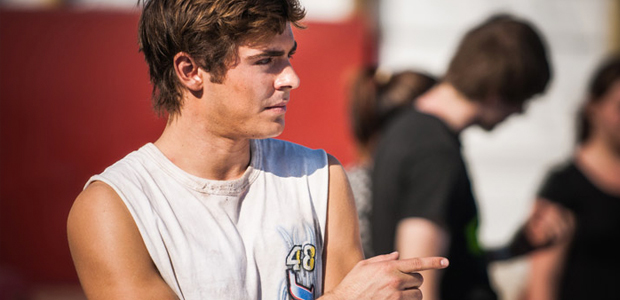
After floating around the 2012-2013 festival circuit, this Sony Classics release should have made director Ramin Bahrani a household name, but At Any Price remains a remarkable American indie that sadly failed to find an audience. Starring Zac Efron as a free spirited racecar driver who rejects his family business, an agriculture supply and farm in crisis, Dennis Quaid plays the patriarch of the family, squeezed under investigation for his seed practices. Co-starring Kim Dickens, Heather Graham and Clancy Brown, At Any Price is a family drama-thriller that offers up a fascinating and entertaining look at modern agriculture.
9. Gravity (Alfonso Cuaron)

One of the year’s most talked about blockbusters, what I found most remarkable about Gravity is its scale. An effective and thrilling technical achievement, it’s essentially a one-women show led by Sandra Bullock in her best performance. A psychological thriller above all, Cuaron has made a smart sci-fi story masterfully contained within an airtight 90 minutes.
8. Blue Jasmine (Woody Allen)
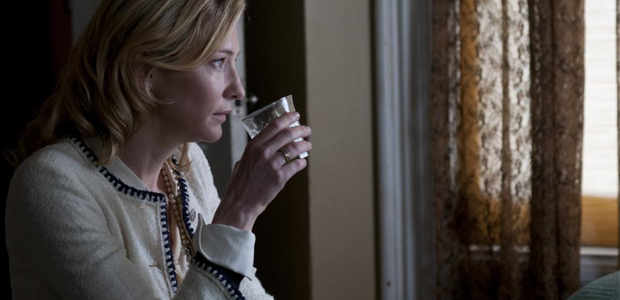
Woody Allen’s best film in years, a sort-of retelling of A Streetcar Named Desire with a few twists, Blue Jasmine is both a brilliant comedy and powerful drama. Cate Blanchett gives a stellar performance as a Jasmine, a women abandoned by her businessman husband (Alec Baldwin in a particularly slimy role). Moving from New York to San Francisco to live with her sister Ginger (Sally Hawkins), the New York socialite finds herself a fish out of water, downsizing her life drastically. The film contains so many brilliant moments and great performances, including Andrew Dice Clay as Ginger’s ex-husband and Bobby Cannavale as her current boyfriend.
7. 12 Years a Slave (Steve McQueen)

A paradigm-shifting film, 12 Years a Slave is a complex look at the dynamics and economy of slavery. Despite its flaws (including the casting of Brad Pitt), films like this are revolutionary when they arrive. Steve McQueen continues his transformation from art star to A-list director in a film that studies perspective including the guilt of Solomon Northup, a freeman enslaved (played by Chiwetel Ejiofor). This is a well-crafted, psychologically brutal film offering a unique perspective on the subject.
6. Her (Spike Jonze)

A beautiful study in alienation and loneliness, presenting so many themes the film could be the subject of its own TED conference, Spike Jonze’s Her is a lyrical and soulful film recalling Mike Mills’ Beginners. Joaquin Phoenix gives a beautiful performance as Theodore, a lonely man who asks his mobile OS to play him melancholy songs. Soon his tame OS is replaced by Samantha (Scarlett Johansson, giving an Oscar-worthy voice performance). Complex and rich, Her is the most daring film released by a major studio this year, exploring the complex psychological nature of falling in love: what we expect, what we project and how we evolve.
5. Let the Fire Burn (Jason Osder)
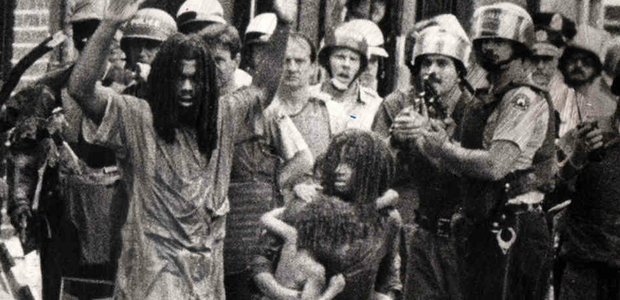
Let the Fire Burn tells the incendiary story of multiple bad decisions made by the City of Philadelphia which lead to the destruction of a densely populated neighborhood in attempt to “evict” the extremist African American liberation group MOVE. Told entirely in archival footage, Osder masterfully captures time and place; we know exactly what was known then, as muddy as the facts are. Framed by testimonials given before a commission investigating the day, the chips fall where they will. A powerful, thrilling, engaging and essential documentary, it’s fresh, speaking to us in the present tense from 1985.
4. Finishers (Nils Tavernier)

Finishers is a wonderful, crowd-pleasing tearjerker, inspired by the real life Hoyt Family. Starring Fabien Heraud as Julien, a 17-year old with congenital palsy, he gravitates towards his mother (Alexandra Lamy) while his relationship with his father Paul (Jacques Gamblin) has remained distant. After several attempts, Julien convinces Paul to carry him on his back for the grueling Iron Man France triathlon. Packing a physical and emotional punch, Finishers (currently without a US distributor) is a first-rate family sports drama that left not a dry eye in the house when it premiered at TIFF.
3. The Act of Killing (Joshua Oppenheimer & Anonymous)

The Act of Killing is rare kind of film that leads to a temporary paralysis. Examining the current lives of former members of Indonesian death squads, they are celebrated as heros for their work in ridding the country of communists. They continue onwards participating in talk shows, TV pageants and recreations where they receive the royal treatment. Indonesia has never had a truth and reconciliation moment and Oppenheimer (and collaborators credited anonymously), have made a brave and powerful film exploring a bastardized version of history. The film forces us to question the narratives of our national history: what atrocities have we glossed or repressed?
2. Nebraska (Alexander Payne)
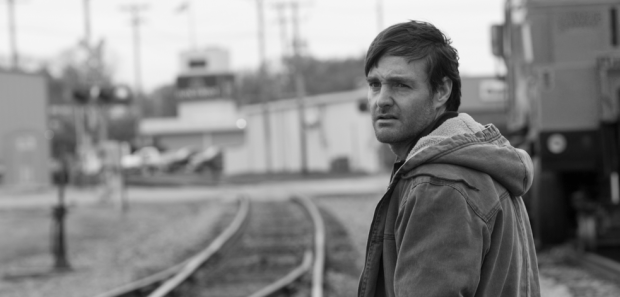
Alexander Payne’s latest feature is his best, a wonderful film that does so much right from its unique tone (shifting quietly from parody to melancholy) and its relationships. The story is centered around the life of Woody Grant (Bruce Dern, in a brilliant performance) and potentially his alternative life as he returns to rural Nebraska on his way to claim a prize. Enabling the stubborn old Woody is his son David (Will Forte), a lonely stereo salesman. June Squibb also gives a hilarious performance as Woody’s wife. Nebraska is a rough, yet lovable movie, hitting notes so rarely seen. It is one of the best road comedies ever made, embodying the old notion that road movies are about the journey, not the destination. Here is a film that reflects on journey in truly profound and often heartbreaking ways.
1. At Berkeley (Fredrick Wiseman)

A rich, behind-the-scenes look at academia, Fredrick Wiseman studies his largest institution yet while barely scratching the surface. Berkeley is a challenging subject, a laboratory of many issues percolating in higher education, however, administrators interested in transparency give Wiseman tremendous access. Each scene never overstays its welcome as the film captures many fascinating moments from the bottom up. Juxtaposing administrators crafting a public safety and PR response to a planned protest, with a classroom where freshman undergraduates struggle to define their roles in society, At Berkley, the 38th institution-centered documentary by Wiseman, is not only one of his best, but his most accessible, despite its four-hour running time.

